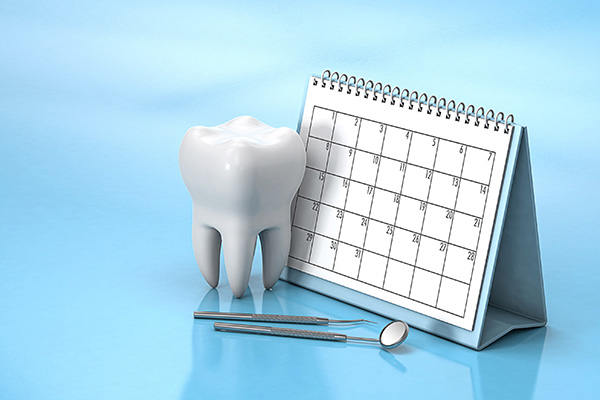 Most healthy dental patients are recommended to visit the dentist for routine dental care, which can include undergoing a cleaning twice a year and obtaining periodic X-rays to ensure the absence of cavities, gum disease, and other common dental abnormalities. Speaking with a dentist and keeping track of hygiene routines at home are great ways to ensure a lifetime of good oral health.
Most healthy dental patients are recommended to visit the dentist for routine dental care, which can include undergoing a cleaning twice a year and obtaining periodic X-rays to ensure the absence of cavities, gum disease, and other common dental abnormalities. Speaking with a dentist and keeping track of hygiene routines at home are great ways to ensure a lifetime of good oral health.
Why should patients ask questions at each dental visit?
Though a patient may assume the dentist will discuss whatever the patient needs to know at a routine dental care visit, it is always a good idea to inquire about oral health to stay actively involved in the maintenance of oral hygiene. Asking questions is even more important for patients who have preexisting medical conditions that affect dental health or those who have a history of dental issues, such as frequent cavities.
What questions can patients ask to ensure great dental care?
A dentist is able to advise a patient on several matters pertaining to oral health — not just brushing and flossing. Ask a dentist at the next appointment how to better maintain good health between visits.
1. How can I improve my oral health?
If the dentist notices that the patient’s oral health has declined, this may be an opportunity to inquire about their diet, oral hygiene routines, and any medical conditions that the patient has. Diabetes, in particular, can wreak havoc on the mouth due to constant high blood sugar levels, and the dentist can explain any dietary changes to consider so the patient may regain oral health.
2. Am I using the right kind of toothbrush?
A healthy patient may assume that there are no dental concerns to be discussed, but even people who have never had a cavity may have a significant buildup of plaque. Patients who have trouble brushing the molars in the very back of the mouth, for example, may need to consider using a different kind of toothbrush. A dentist can make a recommendation for a different type of toothbrush with a smaller or more flexible head.
If the patient finds flossing to be cumbersome, the dentist can have a conversation about how to make this activity easier. For example, if the patient has trouble remembering to incorporate flossing into the dental routine, simply posting a note in the bathroom may help.
3. How often should I visit the dentist?
Most dental patients can keep teeth and gums healthy by sticking to twice-yearly routine dental care. However, patients with medical conditions that can affect oral hygiene, such as diabetes or Sjorgen’s syndrome, may want to consider scheduling an extra checkup during the year to assess the state of oral health. This can also make sure that medical treatment for the condition is alleviating any dental discomfort.
Conclusion
Maintaining a great oral hygiene routine can keep teeth and gums healthy for a patient’s lifetime. Remember to ask a dentist if you have any questions regarding oral hygiene, visit frequency, or other conditions that may be affecting oral health.
Request an appointment or call Lalangas Family Dentistry at 972-534-6008 for an appointment in our Dallas office.
Related Posts
When patients go for routine dental care, they may or may not have X-rays taken of their mouths. Dentists use these important diagnostic tools to check all layers of the tooth. While a key part of routine care, X-ray imaging may not be taken every visit. Every patient is different, and the recommended frequency for…
While some might believe visiting the dentist is only necessary for emergencies, routine dental care can be vital for oral health and overall wellness. There are a variety of benefits to seeing a dentist two or three times a year, no matter a patient’s stage of life. While regular brushing and flossing can help keep…
Maintaining routine dental care is important for oral and overall health, but many patients have questions about what it consists of beyond daily brushing and flossing. The right answers can help patients of any age understand the importance of providing optimum care for their teeth and the possible issues if they fail to follow through.…


